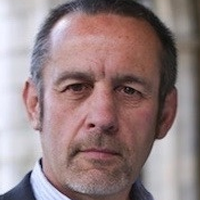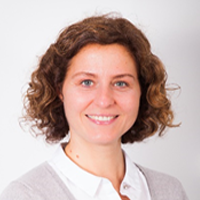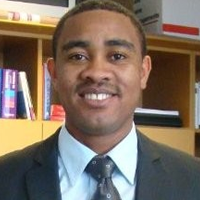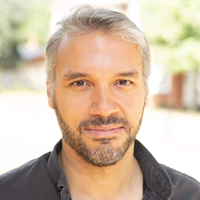Business Buzz
We offer a programme of online courses on the latest business developments. We have a regular monthly series as well as special courses from time to time.
Business Buzz
Who is it for?
Business Buzz is designed for managers, project leaders, and specialists from any business or public sector organisation as well as business school students. The programme content is designed to stimulate thought and ideas about business and technology and we welcome people of all backgrounds.
What is the programme?
Our regular programme includes ten sessions, one per month, throughout the year. Each session is for one hour.
We have a rolling start so participants may join in any month.
How is it organised?
The session is held by one of our expert tutors. The tutor will present the topic and manage discussion points.
Course topics
- Technology and change
- Global business trends
- Growth sectors
- Marketing techniques
- Management and leadership
- Financing a growing enterprise
- Organisation change
- HR and employment trends
- Competence needs
- Business and the environment
Benefits
- Get on top of latest technology developments in business
- Become forward-looking
- Improve communication skills on trends and issues
Cambridge Valid Certificate
Students will receive a Certificate of Attendance with the Cambridge Valid stamp as a valued sign of quality.
Sessions and tutors
Process improvement for the service sector
Mark Robinson
Have you ever been frustrated by an inefficient process? This session introduces you to the key concepts of Lean process improvement. These concepts, easy to understand and apply, will enable you to identify what makes processes inefficient and how to improve them.

Mark Robinson, Managing Director of St Andrews Lean Consulting, began his career in Lean process improvement at the University of St Andrews, one of the earliest adopters of Lean in the UK university sector. He now has over 17 years’ experience of the practical application of Lean, delivering Lean training, facilitating Lean process improvement events, and advising on the establishment of Lean programmes. Mark’s clients come from a range of sectors including charities, government, health, higher and further education, law, medical research, philanthropy, and retail. They can be found around the globe in countries such as Australia, Ghana, Ireland, Malaysia, New Zealand, Saudi Arabia, the UK, and the USA.
Navigating uncertainty – how evaluation can help
Tom Ling
Successful businesses often acknowledge the importance of consciously navigating uncertainty (as opposed to drifting with events). This is an area which the evaluation community has been addressing in recent decades and in this presentation we will identify some of the key lessons and tools emerging from this work. We will contrast the relatively certain environments where experimental methods provide insights with more complex environments where systems thinking and discovery become more important, and contingency, capacity and adaptation characterise success.

Tom Ling has over 25 years of experience in designing, managing and delivering evaluations. He is a senior research leader at RAND Europe where he is head of evaluation. He leads evaluations and applied research focused on the key challenges facing organisations in health, well-being, and international development. Before re-joining RAND, Ling was head of Impact Innovation and Evidence at Save the Children where his responsibilities included ensuring that evaluations contribute to policy and change in the challenging environment of international development. Prior to Save the Children, Ling spent ten years at RAND Europe as director for Evaluation and Performance Audit following four years as senior research fellow at the National Audit Office in the UK. Before that he taught and researched in various universities.
He has over 20 years’ experience contributing to research projects with the European Commission, Save the Children, UK government departments, the National Audit Office, the Health Foundation in the UK and many others. He has published widely on evaluation, accountability, and related topics. He recently co-edited Performance Audit: Contributing to Accountability in Democratic Government (London: Edward Elgar), following his Performance Audit Handbook and The Evidence Book, a critical examination of the use of evidence in public policy and service delivery. He is a senior research associate with Cambridge University and a Professor (Emeritus) with Anglia Ruskin University.
Tom is also President of the European Evaluation Society (https://europeanevaluation.org/).
Leading Virtual Teams
Sandra Romenska

Dr Sandra Romenska is a Senior Lecturer in leadership and leadership development at the University of St Andrews Business School in Scotland, UK. She also teaches Human Resource Management for the MBA programme of the American University in Bulgaria as a visiting academic. Dr Romenska has experience delivering leadership programmes to a wide range of national and international public and private organisations. She has been an invited speaker at many global forums, including the Project Management Institute Global Congress, the World Universities Forum at Davos, UNESCO, Fulbright. Dr Romenska has managerial experience in the non-government, public and charity sector after working with Save the Children-UK, and at various leadership posts in higher education institutions. She has an MA from the University of Warwick and a DPhil from the University of Oxford.
The business start-up scene in Nigeria
Victor Odumuyiwa

I am a techpreneur, digital innovator and researcher who combines research and technical skills in driving digital innovations for enhancing the digital economy and promoting social goods. I am a Massachusetts Institute of Technology (MIT) Empowering the Teacher (ETT) fellow and a seasoned academic with a strong passion to raise the bar of education design and delivery in Africa. I develop responsible Artificial Intelligence for Natural Language Processing with applications in sentiment analysis, recommender systems, log mining, cyber security, and education.
I am building a technology innovation ecosystem within the University of Lagos with a mission to provide a platform for cross-fertilization of ideas among academia, industries, entrepreneurs, start-ups, and investors. I develop strategies for product development, innovation, and growth of the hub. I also drive constructive collaboration and consolidate linkages with key players in the tech space both in and outside the African continent. I identify and develop talents into becoming tech leaders in their own right.
Human, Cyborg, Robot: Three Models for AI in the Workplace
Victor Parchment
Some say that human skill will always be the most reliable economic drivers in many industries and that AI replacement should be regarded with scepticism for its potential harms and limitations (the “Human” Path). Their opponents claim that, instead, AI will free humans from the laborious and the impossibly complex, unlocking new efficiencies and new jobs for all the ones it makes obsolete (the “Robot” Path). But perhaps a third way lies between these extremes, the “Cyborg” Path: AI will indeed change business, not through replacement but through enhancement. The future will belong not to an algorithm but to those who can properly harness it, as past generations harnessed each successive generation of computing. These are all possible futures, but which path is the most likely, and which path is the most desirable?

Member of the Leverhulme Centre for the Future of Intelligence, Cambridge University
Co-Founder and Chief Technical Officer of Iceberg Bio, Victor works to improve data management in healthcare, with a focus on tightening the integration of research and “real world” application. He believes that artificial intelligence could greatly improve human efficiency and efficacy, but more work must be done investigating the ways in which it complements (or disrupts) human workflows, specifically the human factors psychology underlying its design, development, and daily use. He has advanced degrees from the University of Toronto and Cambridge University in the field of Philosophy of Science, with a specialisation in digital tool use (both traditional and ”smart” systems) and their interactions with individual or collective cognitive processes.
Outside of his research, Victor is a full stack software developer and is involved in a number of software and engineering projects, such as the development of adaptive interfaces for clinical decision support systems, and portable hardware solutions to support mobile ad hoc networks for use in disaster relief. Over the past 20 years, he has developed numerous award-winning electronic and software solutions spanning industries as diverse as clinical trials, early childhood education, and humanitarian response.